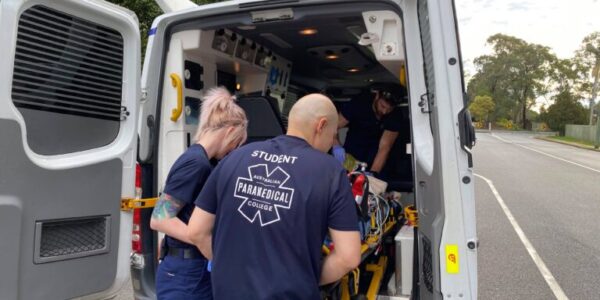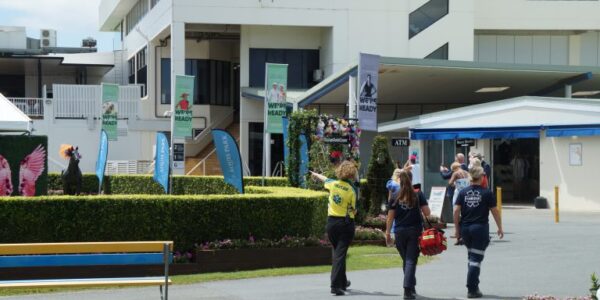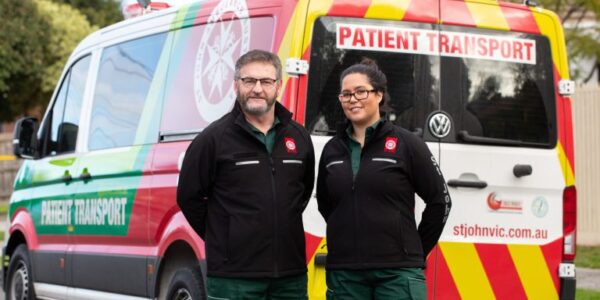What is a First Responder?
A First Responder is an individual who provides basic-to-advanced first aid services until further support arrives on-scene. As their position title suggests, First Responders generally are the first on-scene, providing vital early intervention, and in some cases, patient transport to hospital.
First Responders work both within the private and public sectors, but their titles can vary based on the individuals residing state/territory. Other titles may be Ambulance Community Officers (ACOs), Community First Responders or Advanced First Responders.
Key skills of a First Responder
Working as a First Responder is an extremely important and fulfilling position. Not only is it a great entry-level position in emergency and non-emergency healthcare, but it also allows you to make a difference in the lives of those you treat. Here are some of the key responsibilities within the position:
- Attend public events where accidents may occur
- Assess the health of patients and need for assistance
- Deliver high standards of patient care and customer service
- Provide basic-to-advance first aid where needed
First Responder salary
In Australia, a First Responder can earn an average salary of $76,000, with Queensland and Victoria offering salaries up to $97,000 and $85,000 respectively*.
Compensation may also depend on the type of work, such as providing first aid at public events, construction sites, or in emergency response teams. Experience level, certifications in advanced first aid, and job location (urban vs. remote areas) can further influence salary potential in this vital role.
*Source: Indeed (May, 2024)g
Possible employers
By choosing APC, you’ll gain access to APC’s Industry Partners who employ for positions such as First Responders across Australia. Discover your potential future employer below:
Become a qualified Advanced First ResponderHow to become a First Responder in Australia
Australian Paramedical College (APC) can give you the foundational knowledge and practical skills you need to become an Advanced First Responder within a 12-18 month timeframe.
Depending on your residing location, and preferred employer, First Responders are required to hold qualifications within First Aid and CPR. For those who are keen to step into Advanced First Responder positions, a HLT41120 – Certificate IV in Health Care is a great place to start, but the HLT51020 – Diploma of Emergency Health Care can give you a more competitive edge when applying for positions within the industry.
To learn more about our courses, click the button below.
Why Study with APC
Studying with Australian Paramedical College gives you access to flexible, self-paced online learning combined with in-person clinical workshops. APC offers nationally recognised courses like the HLT41120 – Certificate IV in Health Care, which is ideal for aspiring Advanced First Responders. With expert instructors and practical placements through our industry partnerships, you’ll gain real-world skills that will set you apart in the field. APC provides support every step of the way, helping you achieve your career goals with confidence and flexibility.
Learn moreFirst Responder upskills and thrives with APC
Meet Trudy, an APC student from NSW, studying the HLT51015 – Diploma of Paramedical Science (since superseded by the HLT51020 – Diploma of Emergency Health Care).
Already working within emergency services, Trudy wanted to expand her skillsets to ‘do more’ for her community, specifically within a First Responder capacity.
First Responder skillet and qualities
Empathy & patient care
First Responders need to demonstrate a high level of compassion and understanding on a day-to-day basis for patients in need
Collaborative
Values teamwork and effectively collaborates with other ambulance services, hospital staff and the local community when assisting with patient transfers
Effective decision making
You will need qualifications in First Aid and CPR.
For Advanced First Responder roles, the HLT41120 – Certificate IV in Health Care is recommended, with the HLT51020 – Diploma of Emergency Health Care offering a competitive advantage.
First Responders can work in various settings, including emergency services, public events, construction sites, and remote areas. You can also progress on to more advanced roles or paramedic pathways.
APC’s qualifications are recognised in Australia and New Zealand.
Yes, First Responders can be paid for their work, though it depends on their role, employer, and location. Paid First Responders often work in roles such as event medics, industrial safety officers, or emergency response teams. However, some First Responders, like volunteer firefighters or community emergency responders, may perform their duties without pay.


